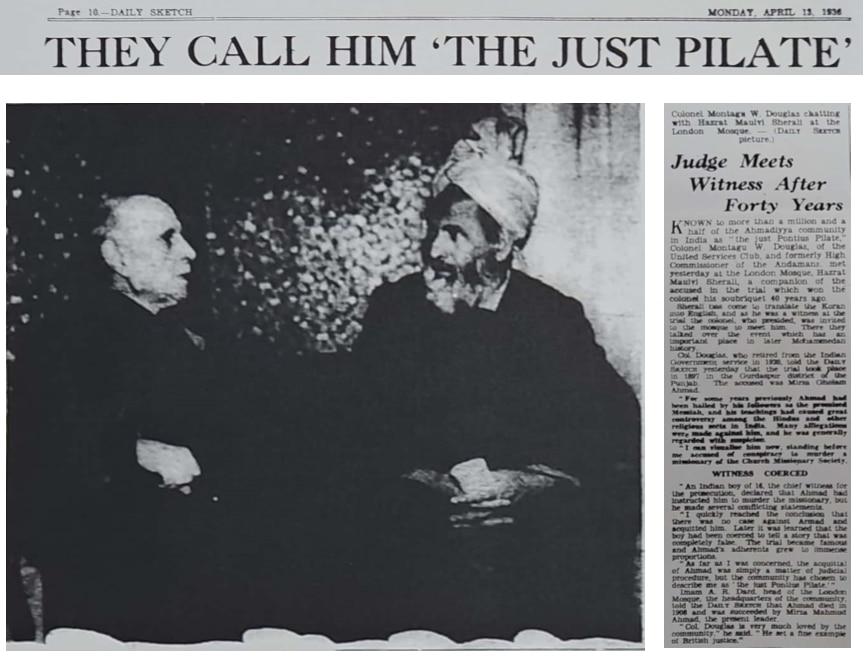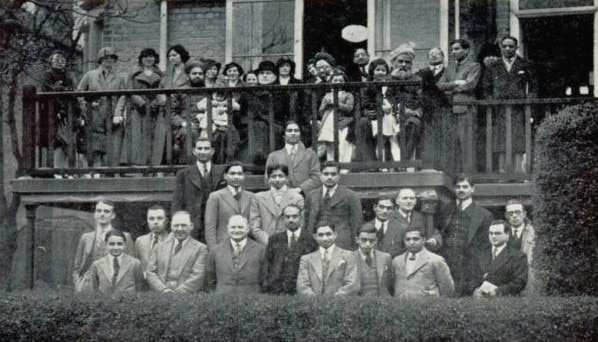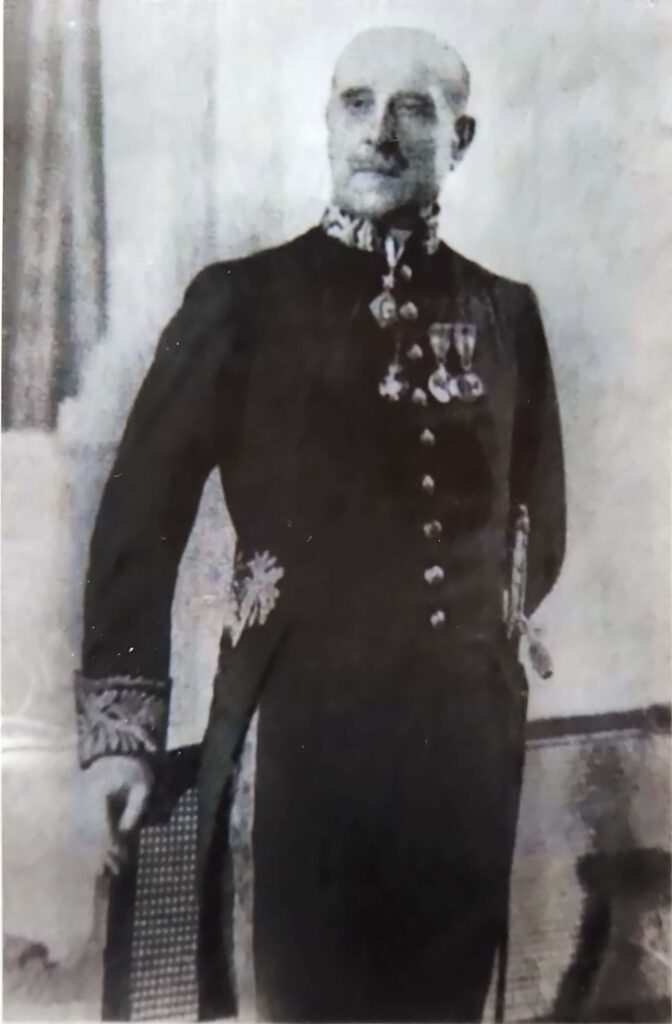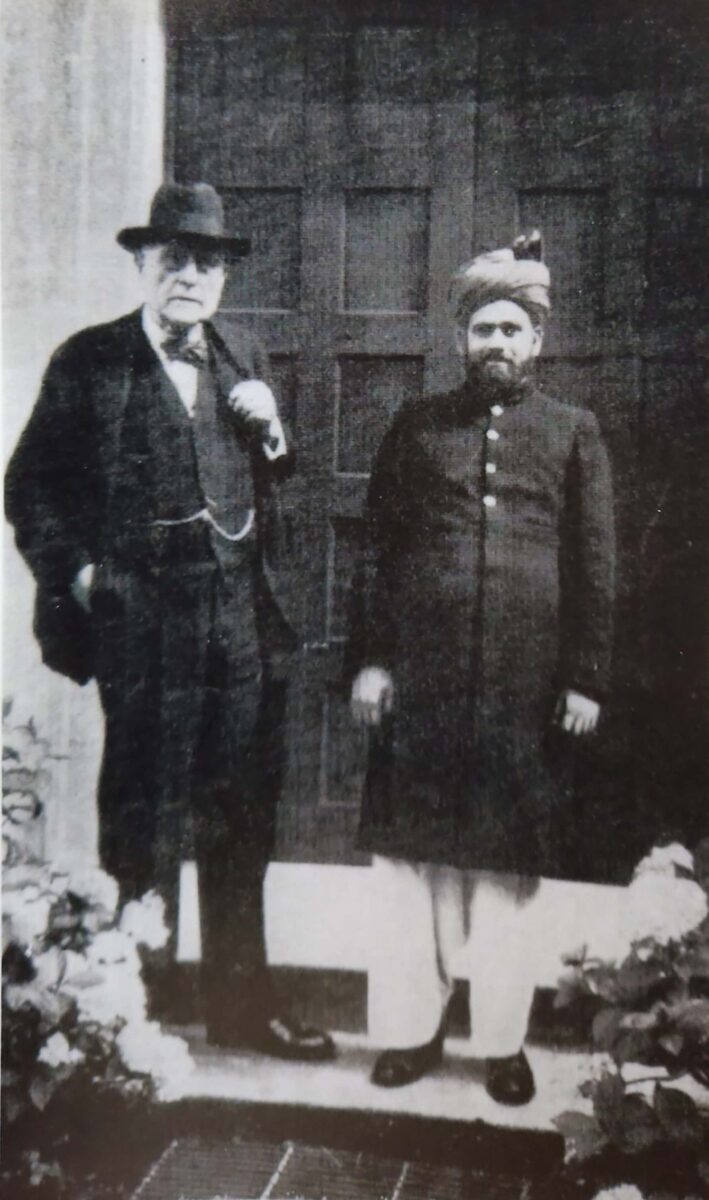Ata-ul-Haye Nasir, Ahmadiyya Archive and Research Centre

In 1897, a false lawsuit of attempted murder was initiated against Hazrat Mirza Ghulam Ahmadas, the Promised Messiah and Mahdi, by a Christian missionary named Henry Martyn Clark (1857-1916). The judge assigned in this case was Lieutenant Col. Montague William Douglas CSI, CIE (1863-1957). He acquitted Hazrat Ahmadas, declaring the accusations made by Martyn Clark as fabricated stories.
Promised Messiah’sas words about Captain Douglas
During an address in July 1899, Hazrat Mirza Ghulam Ahmadas, the Promised Messiah and Mahdi, said:

“As such, one ought to observe the wisdom of Captain Douglas. When Maulvi Muhammad Husain Sahib of Batala said in my connection that I claimed to be a king and an announcement was also read out before him, he was able to grasp with remarkable sagacity that all this was a conspiracy and he refused to lend an ear to any of the falsities of my opponents. Without doubt, in Izala-e-Awham and other books, my title ‘Sultan’ or King has been written, but this is in the context of the heavenly kingdom, for I have nothing to do with worldly kingdoms. […]
“In short, Captain Douglas astutely reached the depth of these matters and dealt with complete justice, without leaning even slightly towards either one of the two parties involved out of partiality. In standing for justice and supporting the oppressed, he demonstrated an example of such excellence that I sincerely hope all the esteemed officials in our government forever uphold this lofty example of justice—a perfect example of equity which even leaves behind the justice of Nusherwan.” (Al Hakam, 24 July 1899, pp. 5-6; Malfuzat [English], Vol. 2, p. 31)
‘This noble judge will be fondly remembered’
In another instance, the Promised Messiahas writes:
“Captain Douglas, who took the place of Pilate as presiding judge in my case, allowed me to be seated. Hence, this Pilate proved himself far more virtuous than the Pilate of the Messiah son of Mary. For, in issuing his verdict, he courageously and stringently remained committed to the rules of the court and paid no heed to any external pressure, nor was he prejudiced by religion or ethnicity. He held court so impeccably that if his person was held up as a means of pride for the nation and as an example for his fellow judges, it would be entirely justified. To pass fair judgment is a difficult task. Unless one breaks off all their ties they cannot rightly fulfil the duties of this office. But I can honestly testify that this Pilate faithfully discharged his duty—whereas the first Pilate of Rome was unable to fulfil his duty so faithfully. His cowardice led to great hardships for the Messiah. Thus, this difference ought to always be remembered by our community for as long as the world exists and as the community grows into the hundreds of thousands and millions, this noble judge will be fondly remembered. It was his good fortune that God chose him for this task. It must be extremely trying for a judge to confront two parties, one of whom is a missionary for his religion and the other holds a belief that is at variance with his own, especially when the judge has been informed that the latter holds stark religious differences. But this courageous Pilate resiliently took on this test, despite the fact that he was shown passages from my books, which owing to a lack of erudition, were interpreted as unduly hostile to Christianity. But, despite this opposing effort, his facial expressions remained impassive, for his enlightened conscience had already arrived at the truth. And because he pure-heartedly sought the truth behind the case, God helped him and revealed upon his heart the truth, and as a result the reality was disclosed to him. He was gladdened for having been able to find the path of justice. Indeed, it was only due to his fairness that he gave me a seat just as was given to the plaintiff. But, when Maulvi Muhammad Husain came to provide his testimony against me in the way that the High Priest had testified, he found that I was seated. As such, his eyes did not look upon me in the state of disgrace that he so desired. At this, he thought to himself that equal treatment would have to suffice and so he requested a chair for himself from our Pilate. However, he reprimanded him and loudly proclaimed that neither he nor his father had ever been given the right of a chair [in any government institution] and that there was no official instruction to provide him a seat.” (Noah’s Ark [Kashti-e-Nuh], pp. 89-90)
Montague William Douglas visits the Fazl Mosque in 1936

Colonel Douglas visited the Fazl Mosque on 12 April 1936. The Daily Sketch reported under the heading “They Call Him ‘The Just Pilate’”, and published a photograph of Colonel Douglas with Hazrat Maulvi Sher Alira, with the following caption:
“Colonel Montagu W. Douglas chatting with Hazrat Maulvi Sher Ali[ra] at the London Mosque.”
This was followed by a detailed report, stating:
“Judge Meets Witness After Forty Years
“Known to more than a million and a half of the Ahmadiyya Community in India as ‘the just Pontius Pilate’, Colonel Montagu W. Douglas, of the United Services Club, and formerly High Commissioner of the Andamans, met yesterday at the London Mosque, Hazrat Maulvi Sher Ali[ra], a companion of the accused in the trial which won the colonel his soubriquet 40 Years ago.
“Sher Ali has come to translate the Koran [sic., Quran] into English, and as he was a witness at the trial the colonel, who presided, was invited to the mosque to meet him. There they talked over the event which has an important place in later Mohammedan history.
“Colonel Douglas, who retired from the Indian Government service in 1920, told the Daily Sketch yesterday that the trial took place in 1897 in the Gurdaspur district of the Punjab. The accused was Mirza Ghulam Ahmad[as].

“‘For some years previously Ahmad[as] had been hailed by his followers as the Promised Messiah, and his teachings had caused great controversy among the Hindus and other religious sects in India. Many allegations were made against him, and he was generally regarded with suspicion.
“‘I can visualise him now, standing before me accused of conspiracy to murder a missionary of the Church Missionary Society.
“Witness Coerced
“‘An Indian boy of 16, the chief witness for the prosecution, declared that Ahmad[as] had instructed him to murder the missionary, but he made several conflicting statements.
“‘I quickly reached the conclusion that there was no case against Ahmad[as] and acquitted him. Later it was learned that the boy had been coerced to tell a story that was completely false. The trial became famous and Ahmad’s[as] adherents grew to immense proportions.
“‘As far as I was concerned, the acquittal of Ahmad was simply a matter of judicial procedure, but the community has chosen to describe me as “the just Pontius Pilate.”’
“Imam A.R. Dard[ra], head of the London Mosque, the headquarters of the community, told the Daily Sketch that Ahmad died in 1908 and was succeeded by [Hazrat Hakeem Maulvi Noor-ud-Deenra and then by] Mirza Mahmud Ahmadra, the present leader.
“‘Col. Douglas is very much loved by the community,’ he said. ‘He set a fine example of British justice.’” (Daily Sketch, 13 April 1936, p. 10)
Montague William Douglas visits the Fazl Mosque in 1939

On 30 July 1939, Montague William Douglas presided over a gathering held at the Fazl Mosque in London to honour the Promised Messiahas, which served as a ceremonious recognition of the Promised Messiah’sas enduring legacy.
The South Western Star reported under the heading “Southfields Mosque: Promised Messiah Honoured”:
“A special meeting at the London Mosque, Southfields, on Sunday, in honour of the Founder of the Ahmadiyyat movement, Mirza Ghulam Ahmad[as], was presided over by Col. M. W. Douglas, C.S.I., who 42 years ago tried and acquitted Mirza Ahmad[as] on a charge of incitement to murder. The Ahmadiyya Community, a group of Muslims, believe that Mirza Ahmad[as] was the promised Moslem Messiah. This community built the London Mosque in Southfields.
“The Imam, Maulvi J. D. Shams, read a paper on the Founder of the movement. He was born in Quadian, a small Indian village, in 1834 [sic., 1835], said Maulvi Shams. Though descended from a princely line, and greatly honoured and revered, he loved to remain in seclusion with his books. In 1889, he announced that he was the Messiah. There was a great stir all over India and a storm of opposition агоsе.

“A Plot that Failed
“In 1897, a young boy was prevailed upon to say that he was sent by the Promised Messiah to kill Dr. Martin Clarke, a Christian missionary. Dr. Clarke charged Ahmad[as] with incitement to murder. The case was tried by Col. (then Captain) Douglas, the president of that afternoon’s meeting. The boy confessed that he had been threatened into saying all that he did, and that whatever he had said against Mirza Ahmad[as] was false. Douglas acquitted Ahmad[as] of the charge.
“‘The chairman of this afternoon’s meeting,’ said the Imam, ‘will always be remembered as a symbol of even-handed Justice.’
“A Spiritual Movement
“Col. Douglas thanked the Imam for his interesting address. He said that he was often asked the main objective of the Ahmadi faith, and he replied that it was to spiritualise the Muslim religion. He considered the development of the Ahmadi faith brought the Muslim religion into proper adjustment with the life of today. When he tried the case against the Founder, 42 years ago, the followers numbered only hundreds. Now they number over a million. He wished the movement all success.” (South Western Star, 4 August 1939, p. 3)

